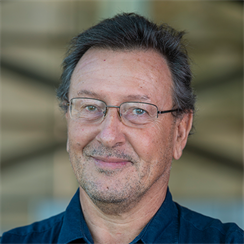
Carlos M. Duarte
Ibn Sina Distinguished Professor , Marine Science
Executive Director, Coral Research & Development Accelerator Platform
Marine ecosystems are profoundly affected by human activities, and understanding these impacts is essential. Through innovative conservation and restoration strategies, we have the opportunity to rebuild and restore the resilience of our oceans.
Program Affiliations
Biography
Carlos M. Duarte is an Ibn Sina Distinguished Professor of Marine Science at the King Abdullah University of Science and Technology (KAUST), in Saudi Arabia, and CEO of the Global Coral R&D Accelerator Platform. Professor Duarte was Director of the Oceans Institute at The University of Western Australia, Australia, and held positions in Spain, Norway, and Denmark.
Professor Duarte’s research explores the effects of global change on marine ecosystems and the development of ocean-based solutions to global challenges. He developed evidence-based strategies to rebuild the abundance of marine life by 2050, and he leads efforts to solve the coral reef crisis. Building on his research showing mangroves, seagrasses, and salt marshes to be globally relevant carbon sinks, he developed, in collaboration with different UN agencies, the concept of Blue Carbon as a nature-based solution to climate change. His research, across all oceans, depths, organisms, and ecosystem types, has led to more than 1,100 scientific papers. Duarte is ranked as the top marine biologist and the 12th most influential climate scientist worldwide (Reuters), and he has received multiple accolades.
On April 16, 2025, he was awarded the Japan Prize 2025 by the Emperor of Japan for his “contribution to our understanding of marine ecosystems in a changing earth, especially through pioneering research on Blue Carbon.”
Research Interests
Professor Duarte’s research focuses on understanding the effects of global change in marine ecosystems and developing nature-based solutions to global challenges, including climate change, and evidence-based strategies to rebuild the abundance of marine life by 2050. He is internationally recognized for advancing the concept of Blue Carbon, highlighting the role of coastal ecosystems as vital carbon sinks. His work spans all continents and oceans and covers most marine ecosystem types, from inland to near-shore and the deep sea and from microbes to whales, with a particular focus on the role of seaweed aquaculture as a sustainable solution for multiple challenges.
Education Profile
Ph.D., McGill University, Montreal, Canada, 1987
B.Sc., Biology, Universidad Autónoma de Madrid, Spain, 1982

